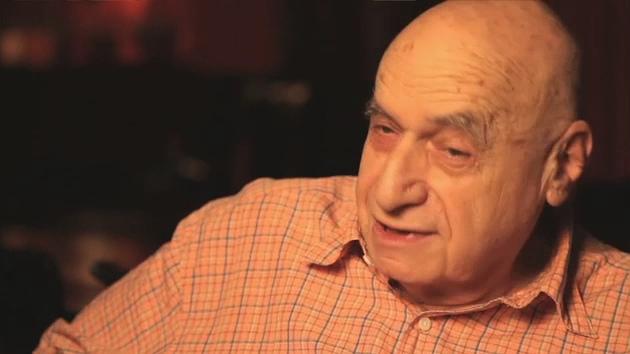Peter Berger’s Moral Compass
archive

Peter Berger’s Moral Compass
Sociologist Peter Berger, founder of the Center for Culture, Religion, and World Affairs at Boston University, passed away on June 27, 2017, at age 88. Although renowned for his prolific and influential writing on the sociology of knowledge, Berger was also a pioneer in the field of global religion.
Berger came at the idea of global religion in a different way than that other great sociologist of religion of the late 20th century, Robert Bellah. Bellah was a comparativist who dove deeply into cultural traditions to ascertain their underlying logic and to find elements of commonality among them. Berger, born in Austria and trained in America, was on the other hand a universalist who posited the notion of an absolute ethic and examined a range of cultural differences to find elements of this basic moral stance.
Berger’s convictions were on display in an incident that I observed years ago at a conference hosted by the Berkeley-Harvard program in comparative religion. Our participants clustered in two camps, the ethical relativists and the ethical absolutists. Peter Berger fell in with the latter. As the conference proceeded, the discussion turned to the case of sati, the practice in India of widow-burning, where the grieving widow was supposed to throw herself onto the funeral pyre of her departed husband and achieve a kind of divine immortality as a result. Berger listened to the cultural defenses of the practice for a moment or two, and then before he had had enough.
Rising to his feet, his voice thundered as he pointed an accusing finger at each of us seated around an ornate Harvard seminar room: “If the funeral pyre was burning in the midst of this room and an old lady started climbing on it, who among you moral relativists would hesitate even a second to try keeping her alive?”
Whatever else was said that day, Berger’s image of the old lady on the funeral pyre in the seminar room lingered in our minds and framed much of the rest of the debate. That was Berger—he had a powerful way with words, enhanced by striking images from a fertile imagination.

It was not just his own, but the social imagination of whole societies that was the subject that Berger pursued throughout his career. A whole generation of young scholars became excited about the importance of the social sciences through Social Construction of Reality (co-authored with Thomas Luckmann), which taught us that all of the realities of everyday life are in some way socially constructed. Their point was not to trivialize what we think of as reality, but to demonstrate the power of the social imagination in informing our sense of what we think of as real in the world. Berger then elegantly expanded on this point in what is often thought of as a textbook, Invitation to Sociology, but which is largely Berger’s ruminations on the sociological imagination.
It is the power of this imagination that attracted Berger to religion. Like Robert Bellah, he thought of religion as “alternative reality,” the suggestion of transcendence which lay behind the fractured constructions of reality that provide us with the day-to-day world around us, a point that Berger elaborates in The Sacred Canopy: Elements of a Social Theory of Religion. His regard for religion as a cultural resource for thinking on ultimate matters led him to become a well-known defender of religion. His prominence as a champion for the idea of God arose during the era of “God is dead” when, through a series of books—perhaps most notably, A Rumor of Angels: Modern Society and the Rediscovery of the Supernatural—Berger defended the possibility of religious thinking from what he saw as an aggressive strain of atheism.
the social imagination of whole societies... was the subject that Berger pursued throughout his career.
His form of religiosity was an old-fashioned Lutheran variety that left little room for social activism and the cultural compromises with modernity that many liberal Christian congregations have adopted. Consequently, he was often regarded as politically conservative, though in Pyramids of Sacrifice: Political Ethics and Social Change, he tried to be as critical of capitalism as he was of radical socialism.
In his last years he became increasingly interested in religion in a global context. His Center for Culture, Religion, and World Affairs at Boston University became an important arena in which scholars from different religious traditions could interact, and Berger became involved in trying to understand commonalities among the different faiths. He was also trying to understand the role of religion in an era of globalization.
Berger wrote the introduction to a book he co-edited with Samuel Huntington, Many Globalizations, which argued that economic globalization is only one aspect of a series of different kinds of globalization. He added that globalization itself looked different from different parts of the world. Hence the project of understanding the global era is one requiring multiple perspectives, which the essays in the book attempt to provide.
Again, religion was at the heart of Berger’s thinking about the world, including the global world of our 21st century era. In the lead essay for a book on Religion in Global Civil Society that I edited, Berger notes that “whether civil or uncivil, there can be no doubt that religion today is being globalized to an unprecedented degree” (p. 15). Trying to make sense of this new reality, like the many social realities that fascinated him over his long and productive career, continued to challenge Berger, and at heart there was the moral issue: was religion used for civil or uncivil ends?
Berger became involved in trying to understand commonalities among the different faiths. He was also trying to understand the role of religion in an era of globalization.
This brings me back to the story that I mentioned earlier, the image that Berger raised of the hapless Hindu widow about to mount her husband’s funeral pyre that Berger imagined to be blazing away incongruously in the middle of a Harvard seminar room. “Would any one pause for even a second” to dissuade her from her grisly mission?
After a bit of a silence, we cultural relativists had to admit that despite our efforts to give social and religious context to such an event and to understand why she might be propelled to commit such a deed, Berger was right. We would have tried to stop her. There is still, he demonstrated—not just in this story but in all of his incredibly prolific output—a deep moral compass in our modern globalized world.
Berger, Peter L. Invitation to Sociology: A Humanistic Perspective. (New York: Anchor, 1963)
---. The Sacred Canopy: Elements of a Social Theory of Religion. (New York: Anchor, 1967)
---. A Rumor of Angels: Modern Society and the Rediscovery of the Supernatural. (New York:
---. Pyramids of Sacrifice: Political Ethics and Social Change. (New York: Anchor, 1974)
Berger, Peter L. and Samuel P. Huntington. Many Globalizations: Cultural Diversity in the
Berger, Peter L. and Thomas Luckmann. Social Construction of Reality. (New York:
Juergensmeyer, Mark. Religion in Global Civil Society. (New York: Oxford University



